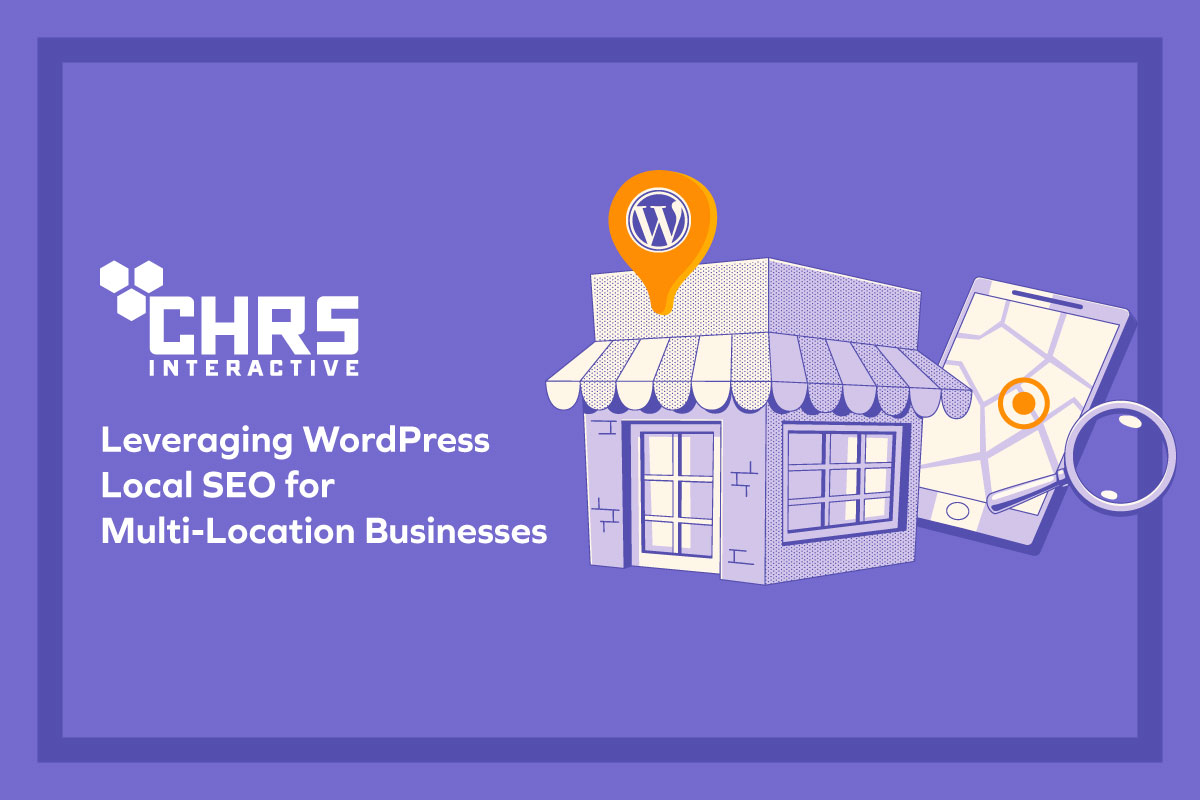Recent trends show mobile devices dominate search behavior, often accounting for 60% or more of total searches, especially for location-based searches. This means that failing to optimize your WordPress website for local SEO may make you miss out on potential organic traffic.
In simple words, your potential customers are looking for you online, but if you aren’t optimized for your location, you may miss them. However, optimizing for local SEO can also feel complex if you have a multi-location business.
So how do you optimize local SEO for a multi-location business? This article will explore all the crucial tips you need to know to leverage local SEO in WordPress for businesses serving different locations.
What is Local SEO?
Local SEO is when a business optimizes its online presence to attract customers or clients from their desired location. For example, if your business offers website design services in Dallas, your WordPress website should include “Dallas” and “Website Design” throughout.
For multi-location websites, you can mention these location-based keywords throughout your site, especially in places like your homepage, service page, about us, and more. If done right, you will be able to attract organic traffic from locations you prefer.
Why You Need Local SEO
81% of shoppers research online before making retail purchases*, and this search is to either find better deals or a more reliable brand. At the same time, Google heavily considers location relevance when providing search results to ensure users get the most from their search.
For businesses, this revelation means they can capture more users by optimizing for their service and location. If done properly, they can capture online users looking for more reliable options either to buy a product or service or find information.
SEO Strategies for Multi-Location WordPress Sites
Now that you understand the importance of local SEO, let’s explore some effective ways to use Local SEO for your multi-location WordPress site.
1. Create separate location Pages
One of the best ways to optimize for each location you serve is to create a separate location page for every area. When optimising, ensure to use the relevant location keywords, meta description, and title tags.
Also, use high-quality images and include custom reviews to make yourself look credible on each page. For more effectiveness, consider interlinking location pages with other relevant pages to help search engines understand the structure of your website.
Having these individual pages gives you the opportunity to mention any special service or charge that you have for these locations. At the same time, you can also include the company address, hours of operation, and other relevant information, especially if they change based on the location.
With this method, users can find content relevant to their location instead of contacting your customer service team to understand what to expect. As for search engines, they can better understand your site and know what to recommend.
2. Create a “Google Business Profile” for Each Location
A Google My Business profile is one way to boost your WordPress website’s local SEO. You need to first create and verify your GMB and ensure the information you put is accurate and consistent with what’s on your website.
However, note that you will have to create a separate Google My Business profile for every location, and while this may be exhausting, it’s necessary for boosting visibility online. Once created, you must regularly update each profile with photos, location-specific descriptions and posts, and customer reviews.
For the reviews part, you can encourage current or previous customers you’ve served in that location to leave reviews on your GMB profile. This will make you look more reliable and compel potential customers to buy your product or service. Beyond external profiles like GBP, optimizing your site’s content is equally crucial for local SEO success.
3. Optimize On-Page SEO Content
For every on-page SEO content you create, consider making it location-based. This means that for content like “Best Coffee Shop,” you can rework it to “Best Coffee Shop in (your location).”
Doing this also helps Google and other search engines better understand your website and when to show it to potential customers.
You should also optimize your meta description to a 160-character summary of your page content. To do this, incorporate location-specific keywords throughout. This will help search engines recommend your site and encourage users to interact with your platform.
The same goes for your content headers (H1, H2, H3, etc.), which provide structure to your content. Use location-specific keywords to highlight different areas and neighborhoods, depending on the content, to be more specific.
4. Create Useful Local Content
Sometimes, potential customers don’t rush straight to your product but start by learning about things surrounding your offering. Therefore, it’s a great idea to create useful content surrounding what you offer.
You can write about local news, events, community initiatives, and other things related to your audience. They will also love useful tips, like “How To…” articles and blog posts, which don’t only solve a problem but place you as an authority in your niche.
As previously mentioned, be sure to sprinkle location-specific keywords throughout your content to help search engines understand you better and recommend your content.
5. Build Local Backlinks
Backlinks are important for signaling to search engines that you are trustworthy and relevant before recommending your site in search results. You can use this to your advantage by using local backlinks to websites, blogs, directories, news, and similar content in your desired location.
Guest blogging on local blogs and participating in local forums are other ways to earn backlinks for your WordPress site. To make it effective, make sure to mention your website and add links to it, which will help search engines and other readers locate you.
Pro Tip: Ensure your NAP (Name, Address, and Phone Number) is consistent throughout all posts and listings.
Don’t expect to see results immediately; building local credibility takes time, but if done right, will send thousands of organic local traffic to your WordPress website. However, to be certain that your efforts are effective, always track your performance.
Use tools like Google Analytics, Google Search Console, and GBP Insights to see your website’s performance. These tools will provide details on traffic, ranking, user engagement, and other relevant metrics.
Using those tools, you can know whether your SEO efforts were effective or need to be revised and implemented with a different approach. If all these feel too cumbersome, you can hire a WordPress SEO expert to perform the research and make the changes your site needs to grow.


